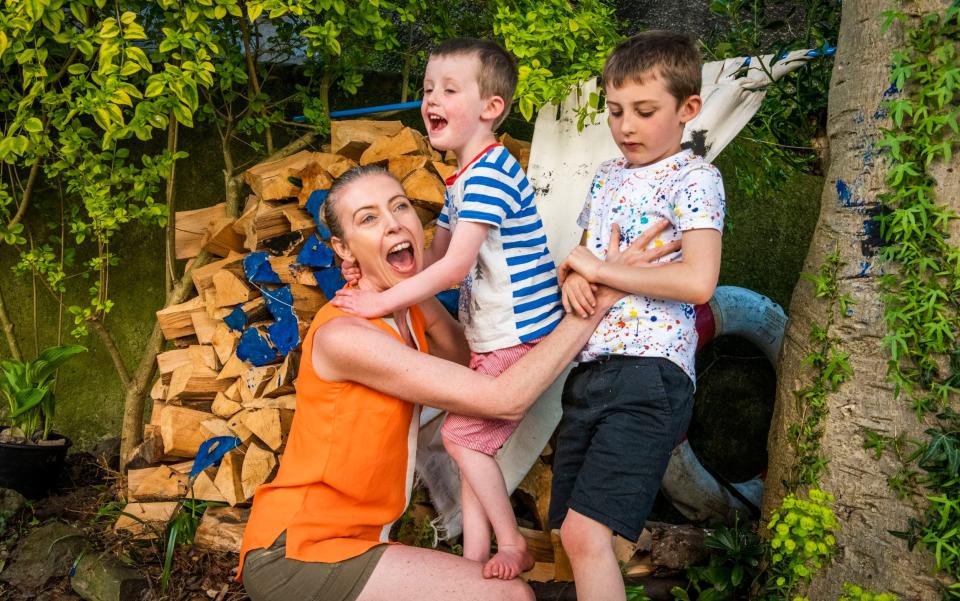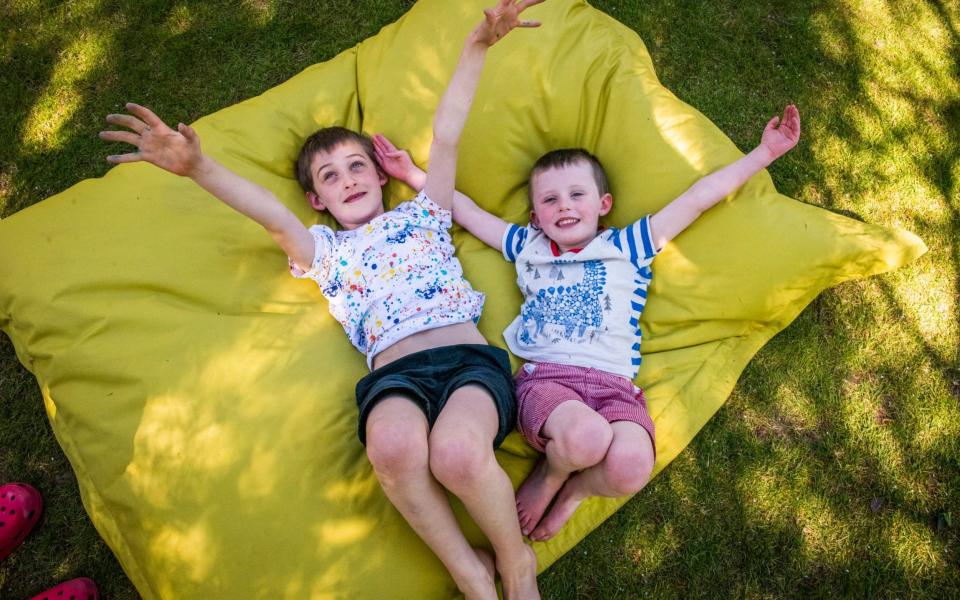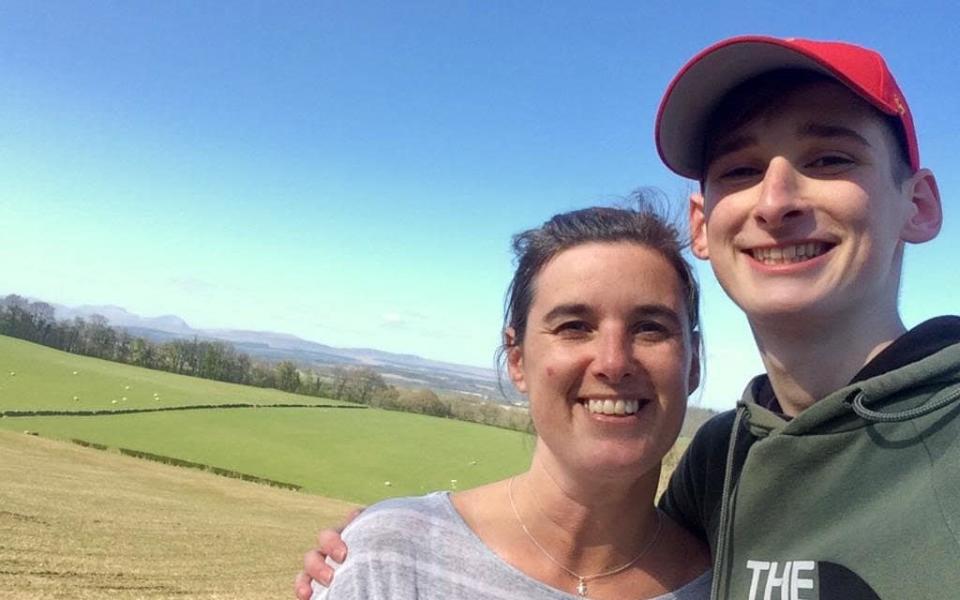Separation anxiety: how to prepare children for a return to nursery, school and work

The post-lockdown separation anxiety that dogs may suffer when their owners return to the office has been a source of worry, but what about the kids? Never before have children spent such a prolonged period of time solely in the company of their own parents and siblings, and while there may be delight (and relief) at the thought of schools reopening, what issues are parents and children facing following a unique period of intense togetherness?
More family time than ever before
Children with siblings have been fortunate to have an outlet for play, sometimes forming tight bonds during the crisis. My boys may only be 16 months apart but, before lockdown, they barely saw each other. The elder, Samuel (aged 6), headed to school, while the younger, Joseph (aged 5), attended morning nursery. After school, our routine featured a brief snack before heading out the door again for an extracurricular class, followed by homework, dinner, then bed. Each day was a whirlwind.
Now, the children learn together, play together, build dens, fight, negotiate, and scheme to outsmart their parents (usually with an iPad-related agenda). I even miss my pre-school baby; our afternoons together have disappeared as he trots off with his brother for another Peter Rabbit inspired adventure. The boys always slept in the same room in separate beds, but now we often find them curled up together. They are getting closer with every day of lockdown, but it will end.
The joy and loss of a return to school
When the schools go back it’ll be a huge change for them, and there’s a certain inevitability that the children will slowly grow apart. I’m intent on making this transition smoother by eliminating several of their extracurricular classes to carve out more time for them to be together. If I can preserve a little of the magic that lockdown brought to their relationship then I’ll have achieved something.

Young children returning to nursery
Parents of babies have their own concerns about lockdown easing. Sonja Bolger (aged 32) of Edinburgh is mother to 17-month-old Cillian. She runs the travel site Migrating Miss and the food website ScottishScran.com. Her husband Phil joined the business as the virus emerged, and their search for a nursery place came to an abrupt standstill.
“The situation’s been impossible,” says Bolger. “The nurseries are shut so we can’t inspect the facilities or meet the staff. Even when nurseries do reopen we need to know how they’ll operate in the aftermath of a pandemic - babies simply can’t social distance. How will it work and how will children settle?

“Secondly, Cillian hasn’t socialised as much as babies usually do. He’s finished his baby classes and we assumed he’d be attending toddler classes now, but that’s all stopped. He’s so used to having both of us at home, it will be interesting to see how he’ll cope in a nursery setting. We assume it’ll take him longer to settle than it would have done ordinarily.”
The Bolgers’ situation is a common one. When professional care falls through, many working parents typically turn to their relatives, but for this generation of babies their grandparents are virtual strangers.
“As we’re self-employed, we used to visit grandparents in Suffolk and Ayrshire. We would work as Cillian spent the entire day with his grandmother or grandfather. Due to lockdown, he hasn’t seen his grandparents at all. When Cillian’s at home one of us has to look after him all day. Without childcare we work into the evenings, and we talk business after he’s asleep. Work/life balance has temporarily gone out the window, but we’re not going to rush Cillian. We know he misses other children, but we can’t put him into a nursery we haven’t inspected or expect him to settle with strangers quickly. It will just be a much slower process than we expected.”
Only children returning to the social whirl of school
Concerns vary from household to household. Parents thrusting an only child back into a busy school after months of adult-only company have worries too. Sofia Gaidon Bradford, aged 9, recently returned to the UK from Ghana with her parents Peter (aged 46) and Leticia (aged 45), and she’ll attend a new Aberdeenshire school when they reopen.

“We were due to return to the UK in June anyway,” says her father, “and planned to reintegrate into our community, but everything changed so quickly. Sofia’s school in Ghana had a week’s holiday in March, and then it simply didn’t reopen due to coronavirus. She didn’t say goodbye to any of her friends. Due to the virus we had to unexpectedly and swiftly fly home to the UK, finding last minute rental accommodation when we landed. It’s been such a period of upheaval for her.”
“We can’t move back into our own home because we let it out when we moved to Ghana, so we’re not even based in our home town for Sofia to make friends. We should get our house-keys back soon, and we hope Sofia will get the chance to meet the local children when lockdown eases.”
Children often meet new friends at playgrounds, clubs or in the street, but such openings are completely shut down.
“Sofia has spent a lot of time in our company,” her father continues. “We’re her parents, teachers, and her friends, but we can’t play with her the way children play together. She’s catching up online with her old friends in Ghana and receiving lessons by video-conference, but we’re hoping she can interact with her new classmates and teacher as soon as possible. She’s nervous about starting a new school but all we can do is talk about her concerns and build confidence. We love her, so we know everyone’s going to love her in time.”
Teens returning to friendship IRL
Teenagers, although older and a little wiser, still find the prospect of returning to school challenging. Children’s counsellor, Karin Figliolini (43), lives in Stirling with her 16 year old son Louis.

“Whilst Louis’s excited about going back to school, it’ll be a shock to the system,” says Karin. “Getting that motivation back, getting into a routine, being punctual again, going to sleep earlier and getting up earlier, and starting new subjects he’s never studied before, is a lot to take on for any teenager. My food bill will certainly decrease, but we both share anxiety about the virus. During lockdown Louis has stuck to the rules fastidiously, but media reports suggest that young people have been the worst for mixing and failing to social distance. When schools reopen Louis will be surrounded by teenagers, so we’re both quite anxious and worried about that.”
Ultimately children will love mixing with their peers again, and all families will readjust. Children are brave and they’re adaptable, but they can be overwhelmed by change. They are living through unusual times, and it’s the role of parents and schools to help them adapt as situations change.
Tips to alleviate separation anxiety
Hannah Abrahams, Child and educational psychologist, and member of the Zoono Family Panel
Know that your baby will be OK. Enjoy the interaction of other children and engage with staff when you drop your child at nursery.
Discuss with your children how they might feel going back to school or nursery. Ask them to name their feelings so you can tame them together. Acknowledge that they may feel worried at drop off, and talk about what to do when you feel worried as this will validate your child's emotions.
Always be consistent in your promises about returning.
While adolescents may feel angst about returning to school, they will also be grappling with the sense of urgency to be amongst friends and peers. United and individual experiences of lockdown and loss will have impacted them hugely, and therefore the need to tell their story will be so important.
Recognise that you’ve been personally affected by Covid-19. Notice your responses to your children’s anxiety and what it awakens in you. Children are intuitive.
What to expect
Javier Orti, Children’s therapist and founder/director of Helpingkids.co.uk
Low to medium worries can result in psychosomatic illness (i.e. tummy ache and headaches), over-excitement, nightmares or unusual behaviour.
Increased questioning and confusion. Is it safe? Will you be safe?
Tiredness: the new routine will affect them physically.
In severe cases, children will experience clear signs of anxiety, becoming more secluded and defensive or aggressive at times.
How to prepare for the return
Communicate: tell them what you will be doing, answer their questions and reassure them.
Encourage children to plan treats: special games or movie nights with their siblings.
Reassure teens: many things will change, but many things will be the same. Friends, laughs, games and music will still be there for you to enjoy. Focus on those that are available and make you happy.
Give yourself time out to relax and plan: the calmer you are, the calmer your children will be.

